Five o'clock Shadow, 2024, Bijou, Zürich (CH)
Tower clockwork, broom, mop, pigment
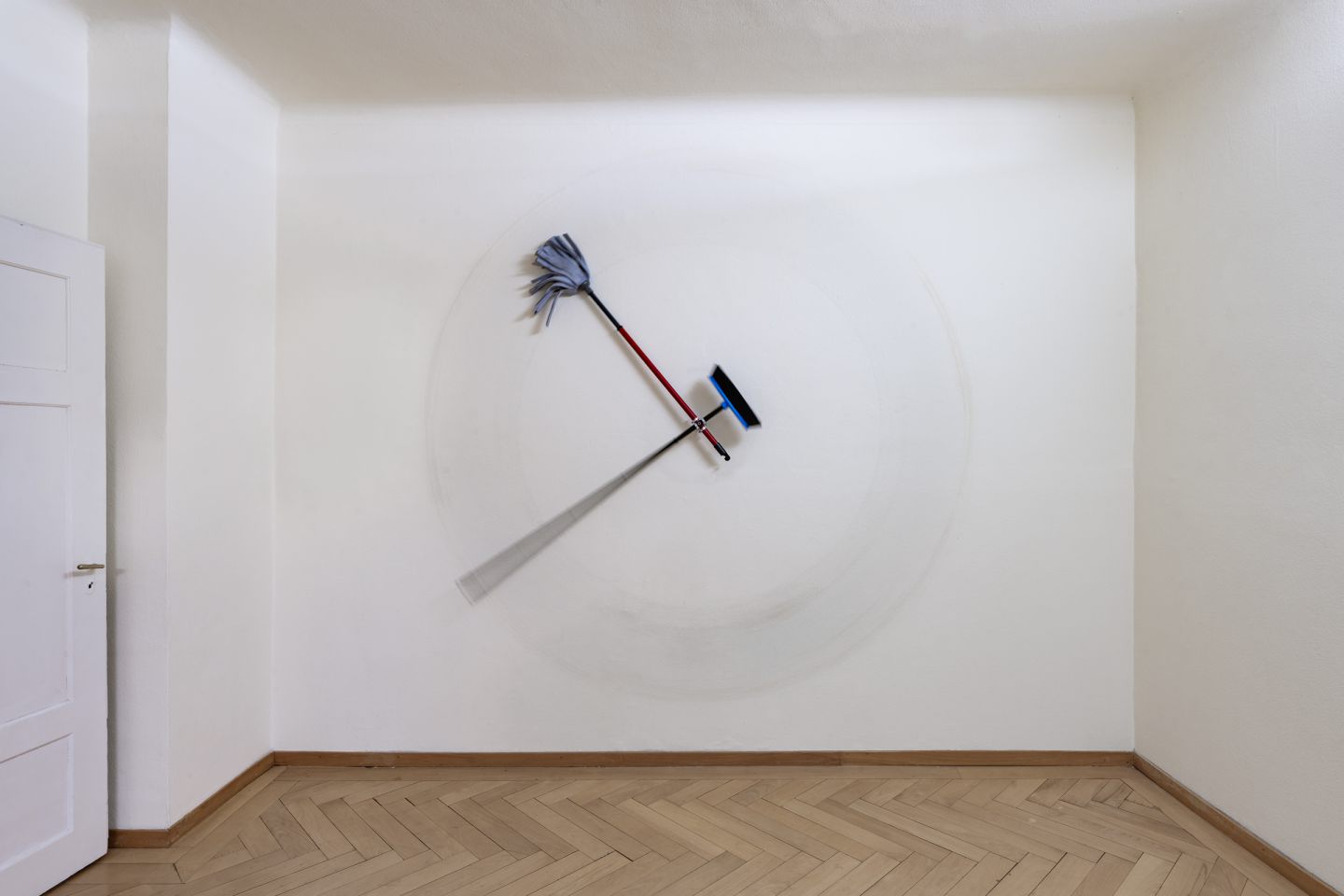
Functioning tower clockwork, whose handles were exchanged by cleaning tools.
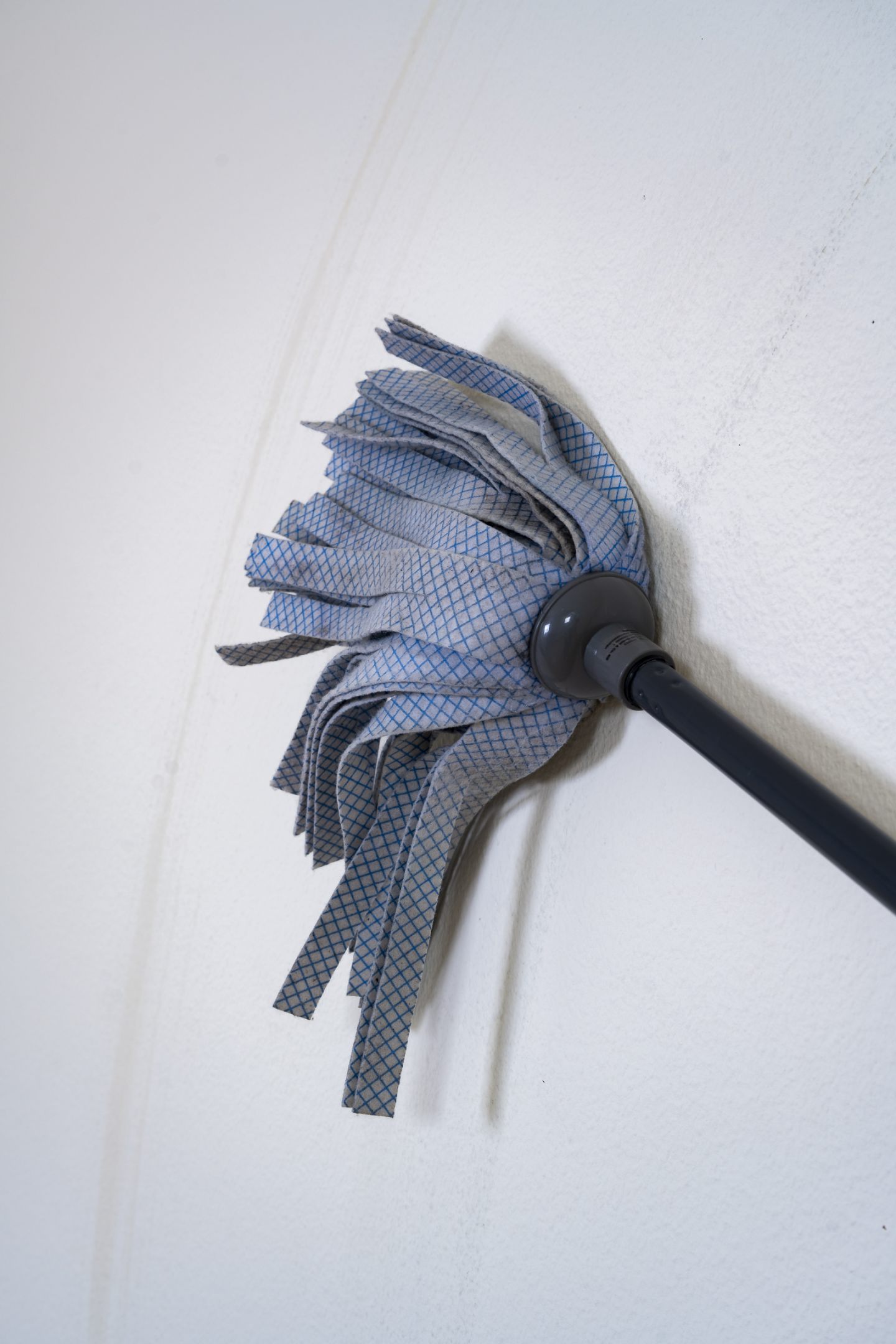
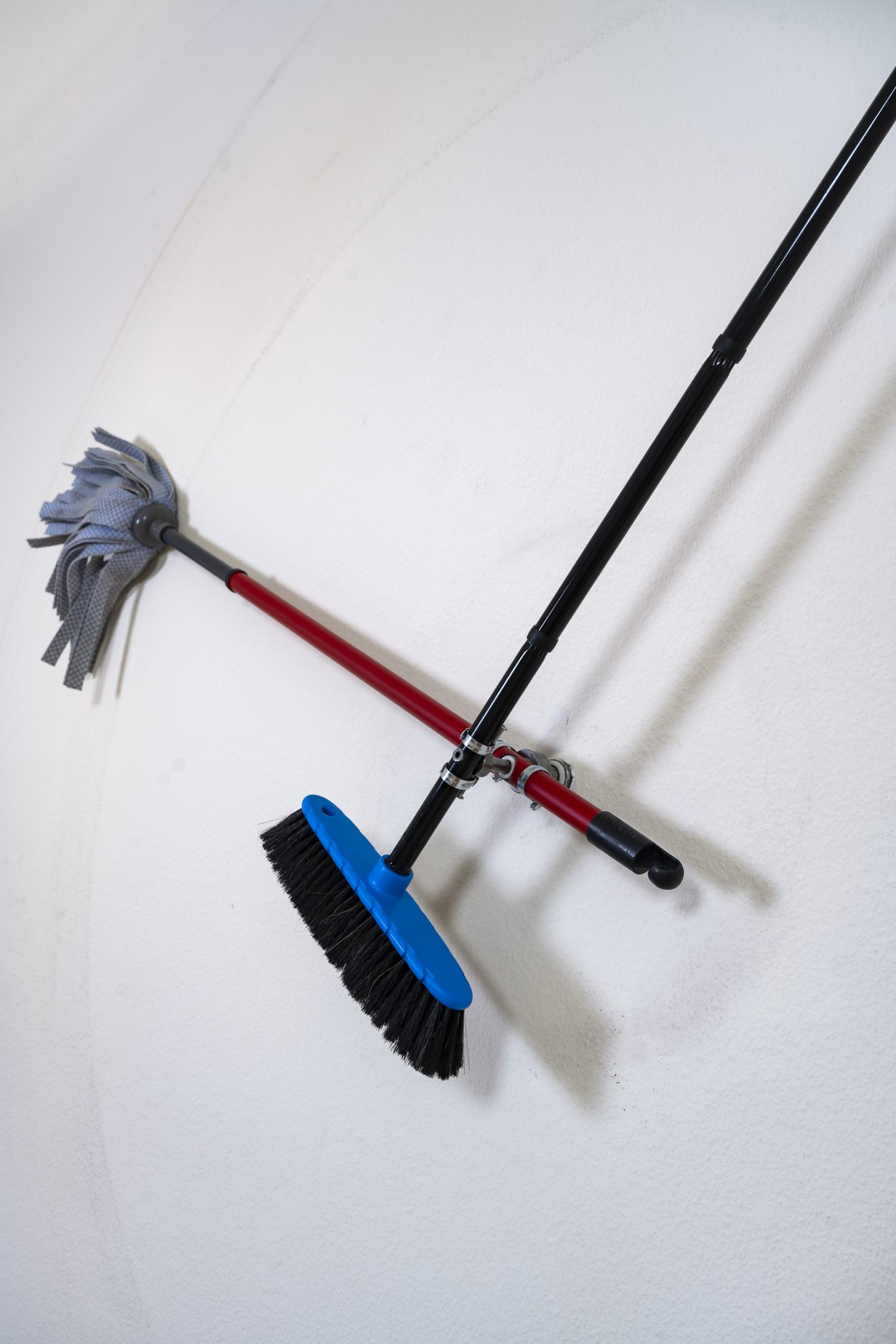
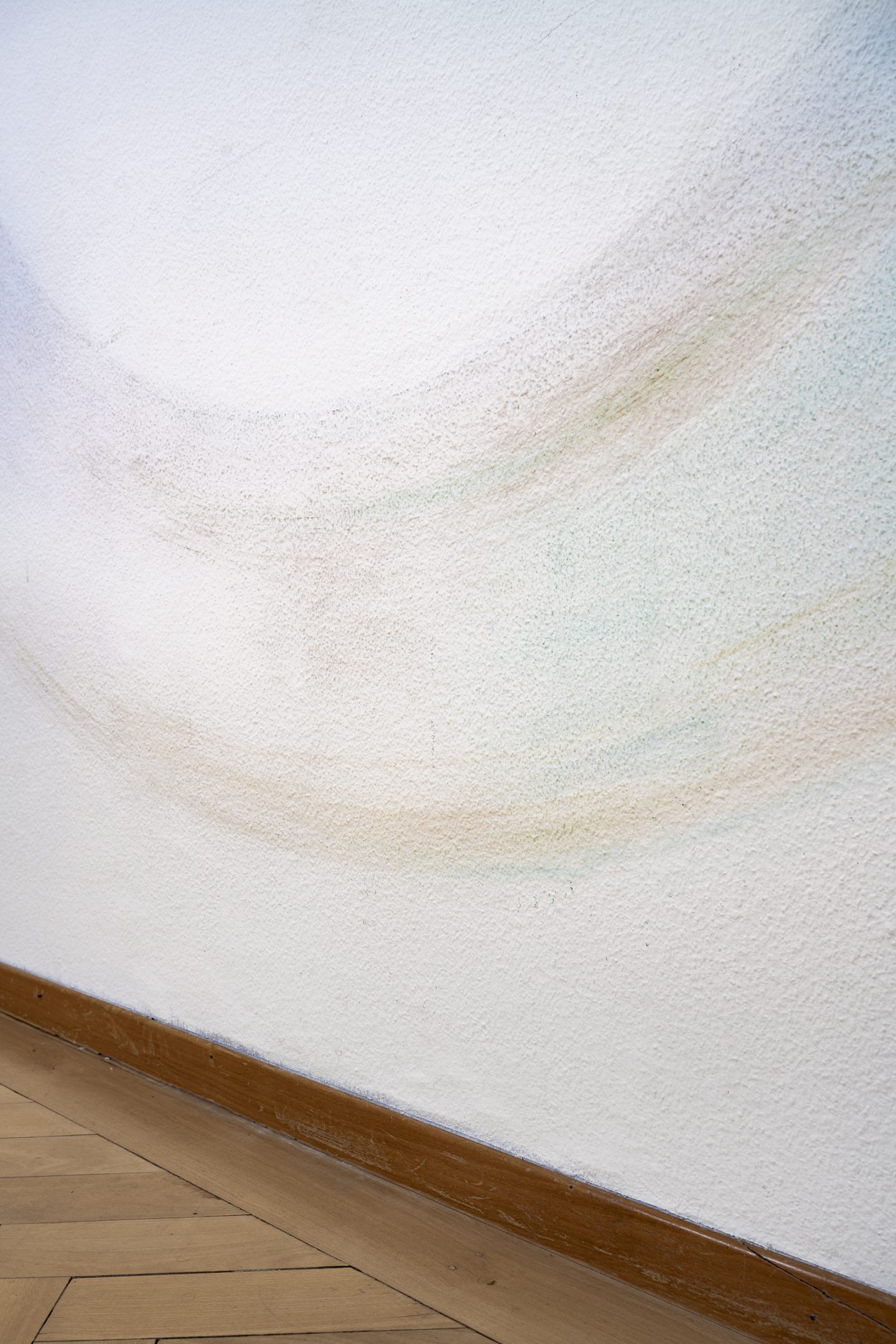
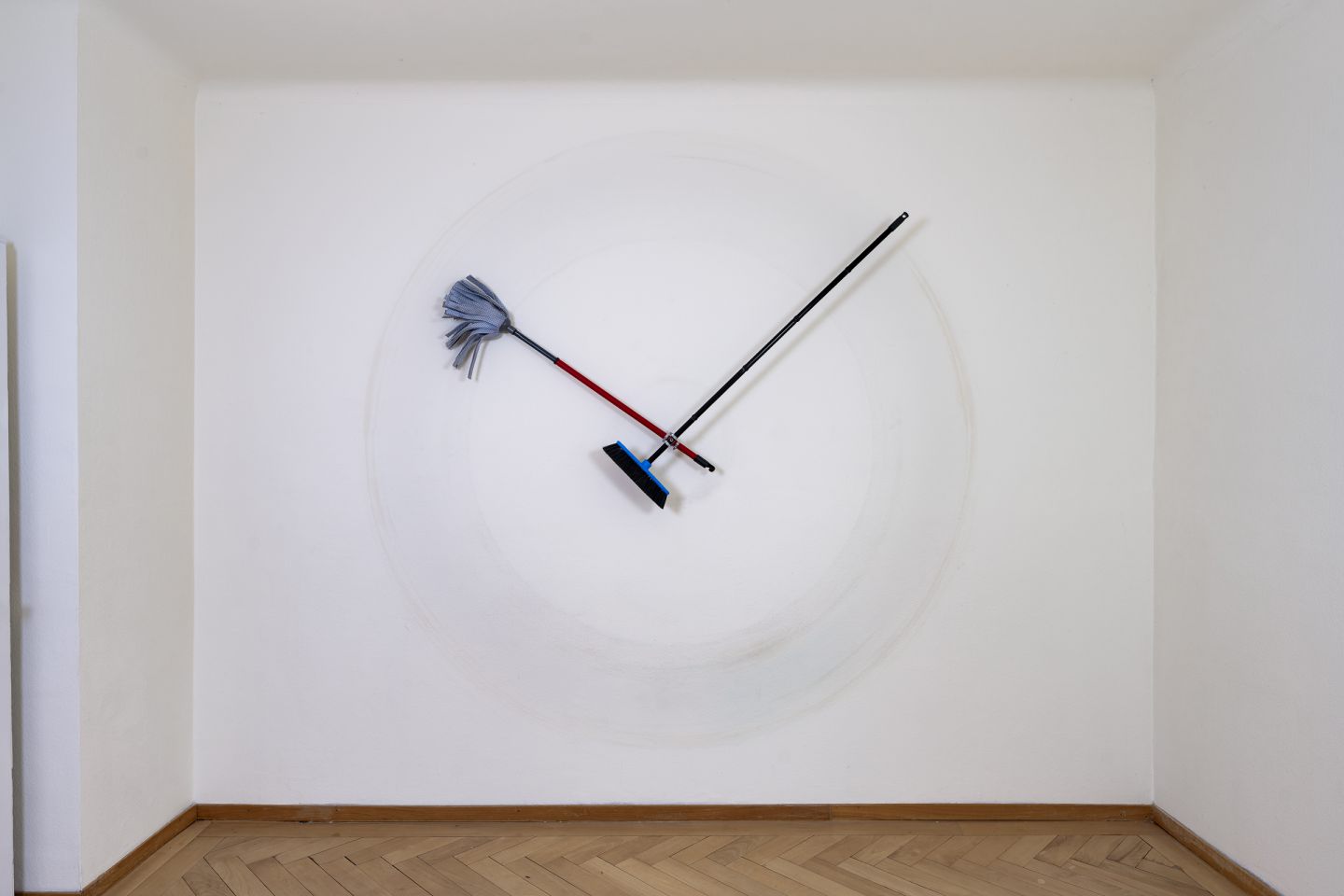
Bijou Brigitte calls it a day
Few relationships hold as much potential for passive-aggressive confrontations as cohabitation. Often, the delicate matter at hand is as mundane as it is ancient: dirt. In German, the words Schmutz (dirt) and Schmuck (jewelry) seem linguistically connected. A coincidence?
Over the years, various approaches to handling dirt have evolved for different social setups. The cleaning plan serves as an attempt to outsource the conflict, aiming to enable the messy, the obsessive-compulsive, the mindful, and the careless to coexist with minimal conflict. The „cleaning plan“ acts as the judiciary of the „shared flat,“ representing the Ten Commandments of communal living. It liberates, resolves, and cleans, but it also curses, admonishes, assigns guilt, lurking on the kitchen or hallway wall like an unpaid bill.
Niclas Riepshoff‘s 5 O‘Clock Shadow performs a gesture that is both profane and sacred. The literal cleaning clock wipes noisily along the wall; it doesn‘t tick but sweeps the abandoned apartment clean. The happiness of living together feels particularly significant because it is limited in time. Colloquially, „5 O‘Clock Shadow“ is also the regrowing beard, sloppy and somewhat sexy. Shaving, like dusting, is a never-ending practice: a thoroughly shaved face in the morning reveals a new shadow by the end of a working day (9 to 5) – a foreshadowing that you‘ll soon have to devote yourself to shaving again, wet or dry, like the cleaning schedule. The key is to keep the grooming cycle moving because nothing is as profound as cleanliness itself.The „aseptic“ is pathological: children should eat a bit of dirt in the sandpit, they say. The dirt-eater has the best (immune) defense system of all.
In Philipp Farra‘s negative photo series, dirty secrets (negative), footballers whisper into each other‘s ears on the pitch in a routine and coordinated manner, like a clockwork mechanism. The players perform a choreography in front of the cameras, playing the „silent whispers game.“ None of the cameras know the exact (cleaning) strategic instructions they exchange; perhaps these are private messages passed on through word-of-mouth propaganda, oral history.
Niclas Riepshoff and Philipp Farra become hosts in „Bijou.“ They extend an invitation to their already broom-cleaned apartment, welcoming exhibition visitors for three days while performing both an initiation and a farewell ritual.
The joy of possessing the „piece of jewelry“ for half a year is particularly intense because it was exceptionally ephemeral – once again, vibrancy is evoked by its imminent end. The association with the „Bijou Brigitte“ chain of stores is as inelegant as the word „jewelry“ sounds in German: Schmuck.
I remember: at primary school age, I had my ears pierced shortly before the store closed. The parents‘ consent form: Fake, of course. My earlobes ulcerated for weeks, and I had to keep going back to the store to buy special disinfectant. You can‘t undo the piercing. The clock is ticking in the land of clocks. Bijou - that sounds like Bisou.
Text: Olga Hohmann
- Five o'clock Shadow
- Erziehungskunst
- Snailhouses for Berlin
- Baby
- Offene Fenster
- Graue Immanenz
- Frankfurz
- CONNY: Find me in the Filling
- A Stitch in Time
- Die ZWEITE HAND
- Berliner Öfen
- In Vitro
- CONNY: Changing Batteries
- Spoons over Knifes
- Absolutes Gehör
- Three Poses for a Newborn
- This is how we stand
- Bin Durstig